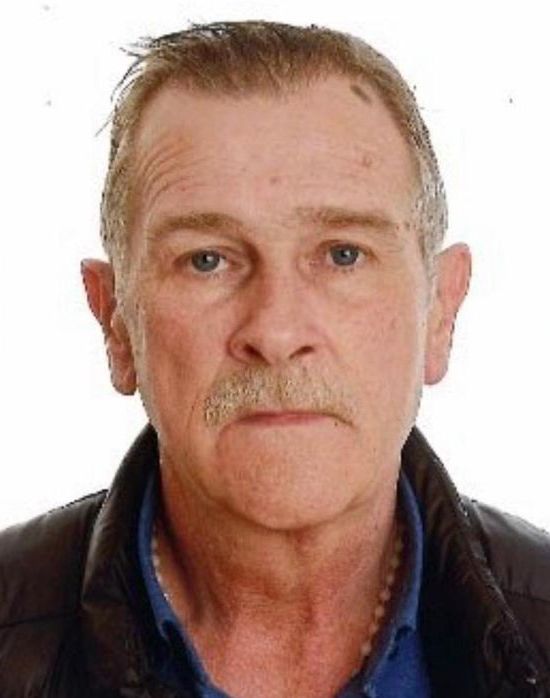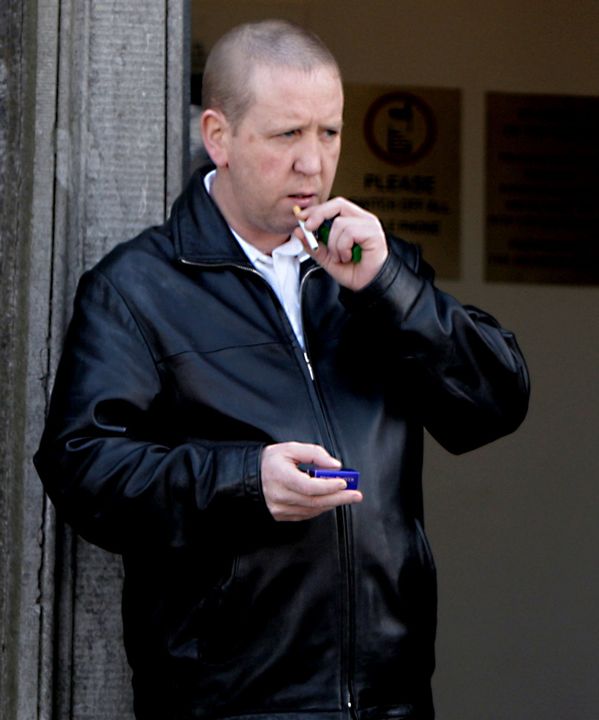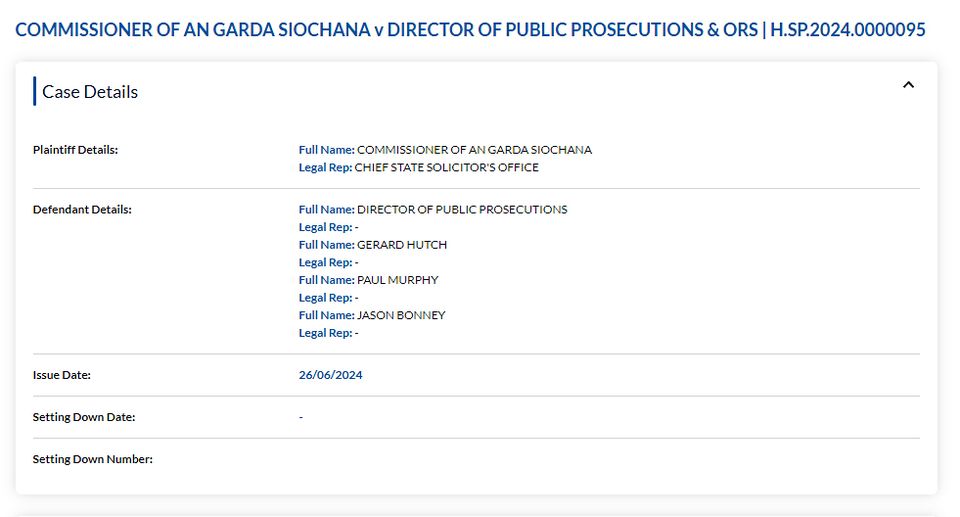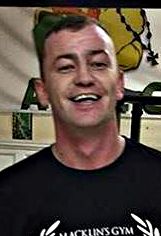World
Garda Commissioner launches High Court legal action against Gerry ‘The Monk’ Hutch
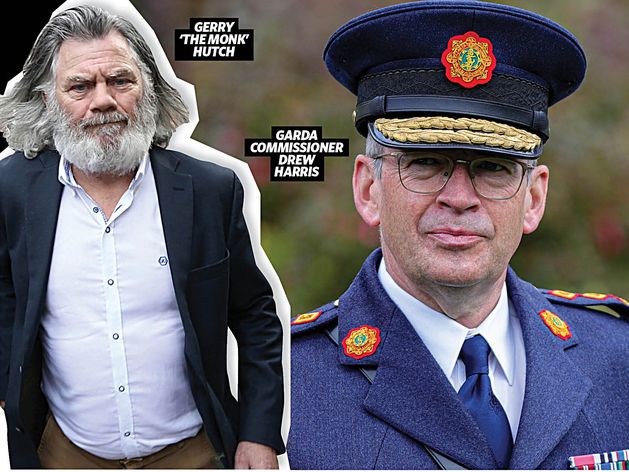
Commissioner takes case against Gerry Hutch and defendants in Regency Hotel gun attack
The Garda chief formally lodged the case against the veteran crime figure and the State’s prosecutors on June 26; however, the Sunday World can reveal it is NOT a personal damages case and is likely to be related to a technical issue connected to the David Byrne murder trial.
Also listed as defendants are Jason Bonney and Paul Murphy who were convicted in the Special Criminal Court for their role in the killing of Byrne.
The Regency Hotel
According to documents lodged with the Courts Service, Commissioner Harris will be represented by the State Solicitor’s Office.
The case is listed as ‘Special Summons’ and has yet to be heard before a judge.
A Garda spokesperson said last night: “This is a routine matter in the course of An Garda Síochána’s work. An Garda Síochána has nothing further to add.”
A special summons is typically used for cases involving pure issues of law or very specific issues of fact.
The case is not a personal action taken by Drew Harris and, according to a legal expert who spoke to the Sunday World, it is likely to relate to some aspect of the evidence used in the trial.
“This is not a damages case taken by Drew Harris,” he said.
Paul Murphy
During a criminal career which stretches back to the 1970s, Hutch will have often seen his name on summons sheets issued by the Director of Public Prosecutions (DPP).
Those legal cases, including his prosecution for the Regency Hotel, will have been investigated by Garda officers before being handed over to the DPP’s office, who prosecute the cases in court.
However, it’s highly unlikely ‘The Monk’ has ever seen his name pla alongside the DPP in opposition to the head of An Garda Síochána.
Jason Bonney
Last night, a source close to Gerry Hutch said that he was “in the dark” and had not been contacted about the case.
Last April, Hutch was acquitted of murder following a case in the Special Criminal Court.
Despite evidence from his former co-accused Jonathan Dowdall, who turned State witness in the weeks before the trial began, Hutch was found not guilty of the charge.
His acquittal came after the State accused him of being the gunman who murdered David Byrne at the boxing weigh-in – an attack that pitted the Kinahan Cartel against the Hutch Organised Crime Gang and members of the Hutch family.
Byrne’s murder was described by the Special Criminal Court as a “meticulously planned, high-velocity assassination” by a six-man hit team which left one man dead and two others injured.
It “sparked mayhem on the streets of Dublin” and resulted in a “series of callous murders”, the court heard.
Documents listing the names of the parties, including Gerry Hutch, involved in the court action being taken by Drew Harris
While Hutch was acquitted of the Regency murder, two of his close associates were jailed for their role in the attack.
Taxi driver Paul Murphy (61) was sentenced to nine years and builder Jason Bonney (52) to eight-and-a-half years for facilitating the killing of Byrne.
Delivering the judgement, Ms Justice Tara Burns said it had been the State’s case Hutch was one of the shooters at the Regency and that was not proved.
Since his acquittal, Hutch has been spending time between Lanzarote and his native Dublin, where he is regarded as a Robin Hood figure.
Born in 1963, Hutch began his criminal career with the gang called the Bugsy Malones, snatching cash, and other low-level crimes.
He picked up convictions between 1970 and 1983 and despite being questioned over various other crimes was never successfully prosecuted again.
He is believed to be the man behind the £1.7million theft from a Securicor cash-in-transit van in Marino Mart, North Dublin, in 1987.
The £3 million Brinks Allied depot robbery in Clonshaugh, also in the north of the city, in 1995 is also believed to have been carried out following a plan devised by him.
David Byrne was murdered
In 1997, he was targeted by the Criminal Assets Bureau who described him in court as a gang leader.
He later settled with CAB, paying around £1.2million.
In 2008, he told RTÉ’s Crime Correspondent Paul Reynolds, it was a tax settlement and denied being involved in crime.
“Oh, yes, a convicted criminal – I am that,” he said. “But not a convicted armed robber. Not a convicted hitman; not a convicted drug dealer…. I’ve done a lot of business in property, it was a good time – that’s where I made my money.”

